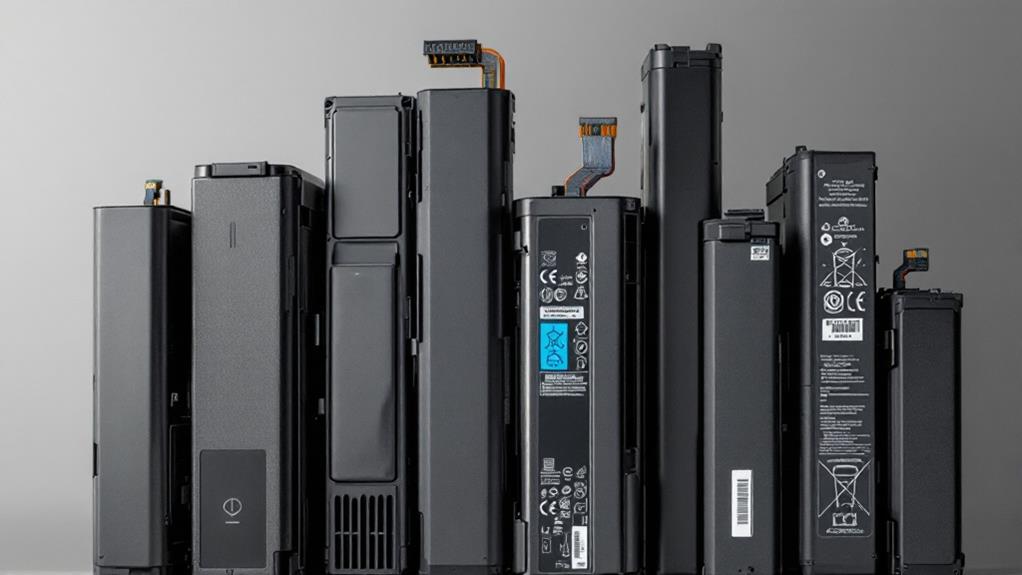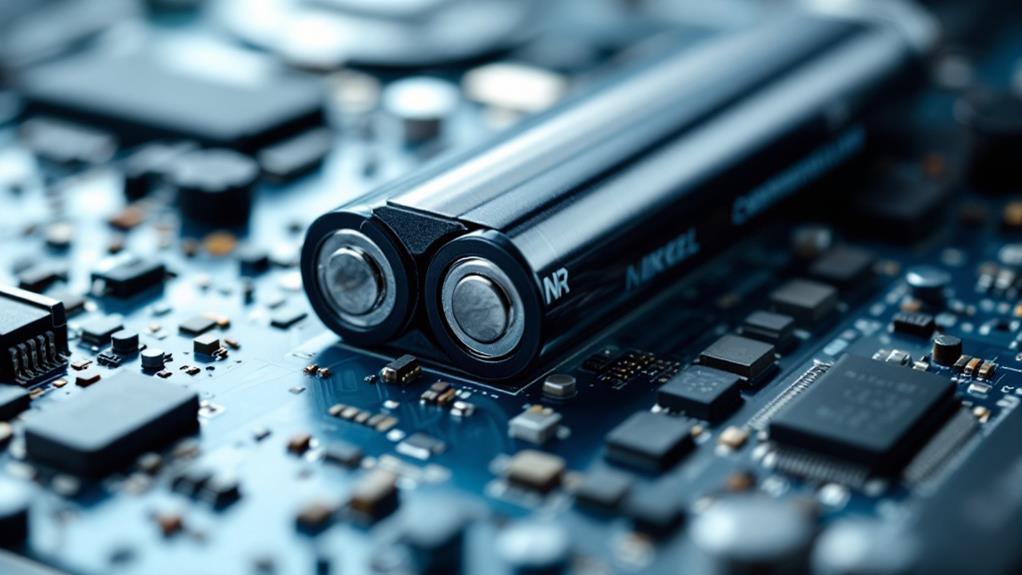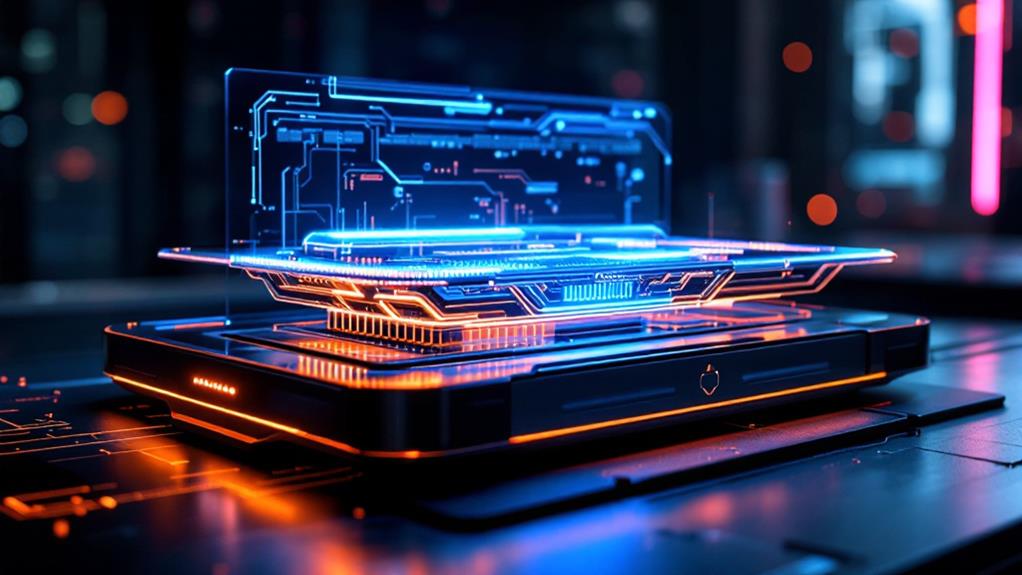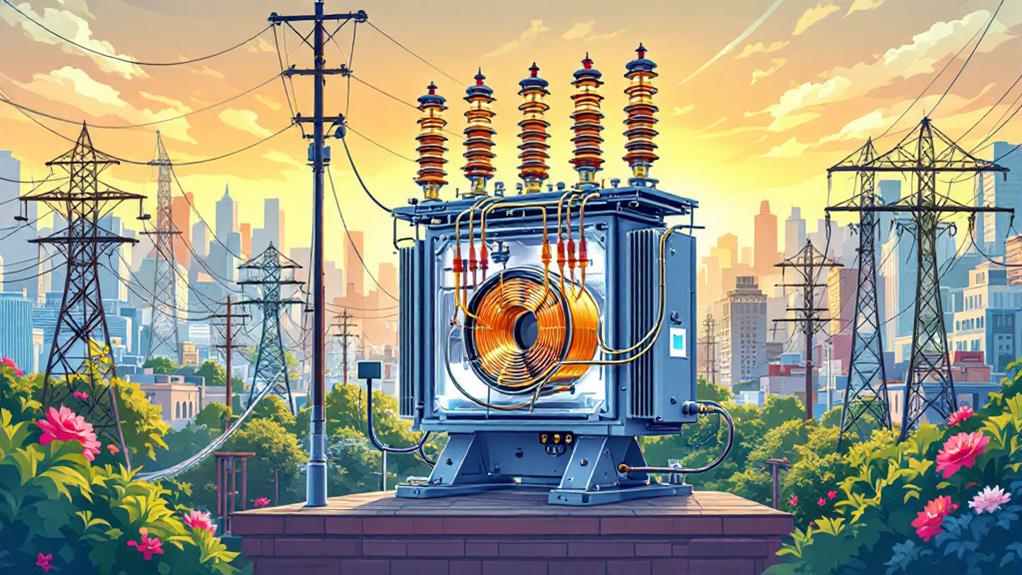All About Laptop Battery Types: A Comprehensive Guide

You're about to plunge into the world of laptop batteries, uncovering what each type offers for your device. Lithium-ion batteries are your go-to for modern, portable devices due to their energy density and lightweight design, but handle them carefully to avoid overheating. Lithium-polymer batteries excel in flexibility and stability, especially in thin laptops. Nickel-cadmium was once a favorite for its durability in different temperatures, but it's heavier. Nickel-metal hydride offers efficiency and convenience but can generate heat. Emerging technologies like solid state and zinc air present exciting advancements. Reveal features that'll help you choose the best battery for your needs.
Lithium-Ion Batteries
In relation to laptop power sources, lithium-ion batteries have become the gold standard. You've likely noticed that most modern laptops utilize these batteries, and for good reason. They offer a reliable balance of energy density and lightweight design, making them perfect for portable devices. When considering a laptop purchase, it's significant to understand the lithium ion lifespan. These batteries typically last between 300 to 500 charge cycles, which translates to about two to three years of regular use. To prolong this lifespan, avoid letting your battery discharge completely and store it in a cool, dry place when not in use.
Lithium ion safety is another vital aspect you shouldn't overlook. While these batteries are generally safe, improper handling can lead to overheating or even fires. To guarantee safety, use the charger provided by the laptop manufacturer and avoid exposing the battery to extreme temperatures. It's also wise to keep an eye out for any swelling or unusual heat, as these can be warning signs of a malfunctioning battery. By taking these precautions, you can enjoy the benefits of lithium-ion batteries without compromising on safety or performance.
Lithium-Polymer Batteries
While lithium-ion batteries dominate the laptop market, lithium-polymer batteries are gaining attention for their unique advantages. If you're considering a laptop with a lithium-polymer battery, you'll appreciate its flexibility in design. Unlike their lithium-ion counterparts, these batteries can be shaped to fit diverse laptop designs, making them ideal for ultra-thin and lightweight models. This adaptability means manufacturers can create sleeker, more compact devices without sacrificing battery performance.
One of the key lithium polymer advantages is their ability to maintain a stable energy output over a wide temperature range. This stability guarantees your laptop performs reliably regardless of whether you're working in a chilly café or a warm office. Furthermore, lithium-polymer batteries are less prone to leaking, offering safer and more durable power options for your device.
When it comes to lithium polymer lifespan, these batteries offer a commendable performance. With proper care, they can last for several years, providing consistent power and efficiency. To optimize lifespan, avoid exposing them to extreme temperatures and try not to let them fully discharge frequently. By doing so, you'll extend their life and guarantee a dependable energy source for your laptop.
Nickel-Cadmium Batteries

A sense of nostalgia might arise when discussing nickel-cadmium batteries, as they were once the standard power source for laptops. You may remember their widespread use before more modern options took over. One of the main nickel cadmium advantages is their durability. They can withstand numerous charge cycles, which means they'll last you a long time if properly maintained. Furthermore, they perform well in extreme temperatures, making them reliable in different environments.
However, nickel-cadmium batteries do come with several disadvantages. They're known for the "memory effect," which means if you don't fully discharge them before recharging, they might lose their full capacity over time. This could lead to decreased efficiency and shorter battery life. Moreover, nickel-cadmium batteries are heavier and bulkier compared to today's selections, which could make your laptop less portable.
Another significant downside is their environmental impact. Nickel-cadmium batteries contain toxic metals like cadmium, which can be harmful if not disposed of properly. You must recycle them to prevent environmental damage. Despite their past popularity, these drawbacks have led to a decline in their use, paving the way for newer, more efficient battery types.
Nickel-Metal Hydride Batteries
Stepping up from their predecessors, nickel-metal hydride (NiMH) batteries have become a more efficient power source for laptops, boasting several advantages over nickel-cadmium options. If you're keen on having a longer battery lifespan, you'll appreciate that NiMH batteries generally offer a higher capacity. This means more time between charges, which is vital when you're working on the go or simply don't want to be tethered to an outlet.
Charging efficiency is another area where NiMH batteries shine. They can handle more frequent charging cycles without suffering significant capacity loss, unlike their nickel-cadmium counterparts, which are notorious for the "memory effect." This means you won't have to worry as much about fully discharging your battery before charging it again, giving you more flexibility in how and when you power up your device.
However, it's important to note that NiMH batteries can generate more heat during charging, which might affect your laptop's general temperature management. Always confirm your laptop has proper ventilation when charging. By understanding these strengths and considerations, you can make informed decisions about if a NiMH battery suits your needs regarding performance and longevity.
Emerging Battery Technologies

In the rapidly evolving world of laptop technology, emerging battery technologies are set to revolutionize how we power our devices. As you investigate the future of battery innovations, two promising technologies to watch are solid state batteries and zinc air batteries. These advancements offer significant improvements in energy density, safety, and overall efficiency.
Solid state batteries use a solid electrolyte instead of the liquid or gel found in traditional lithium-ion batteries. This change eliminates leakage risks and improves safety, while potentially offering greater energy capacity and faster charging times. Here's a brief overview of what you can expect:
- Higher Energy Density: Solid state batteries can store more energy in a smaller space, making them ideal for slimmer and lighter laptops.
- Improved Safety: With no liquid electrolyte, the risk of overheating and combustion is reduced.
- Longer Lifespan: These batteries promise a longer cycle life, meaning fewer replacements over time.
Zinc air batteries, on the other hand, use oxygen from the air as a reactant, which can lead to even higher energy densities. They're also more environmentally friendly, as they use abundant materials and produce fewer harmful by-products. As these technologies develop, they could redefine your laptop experience.



